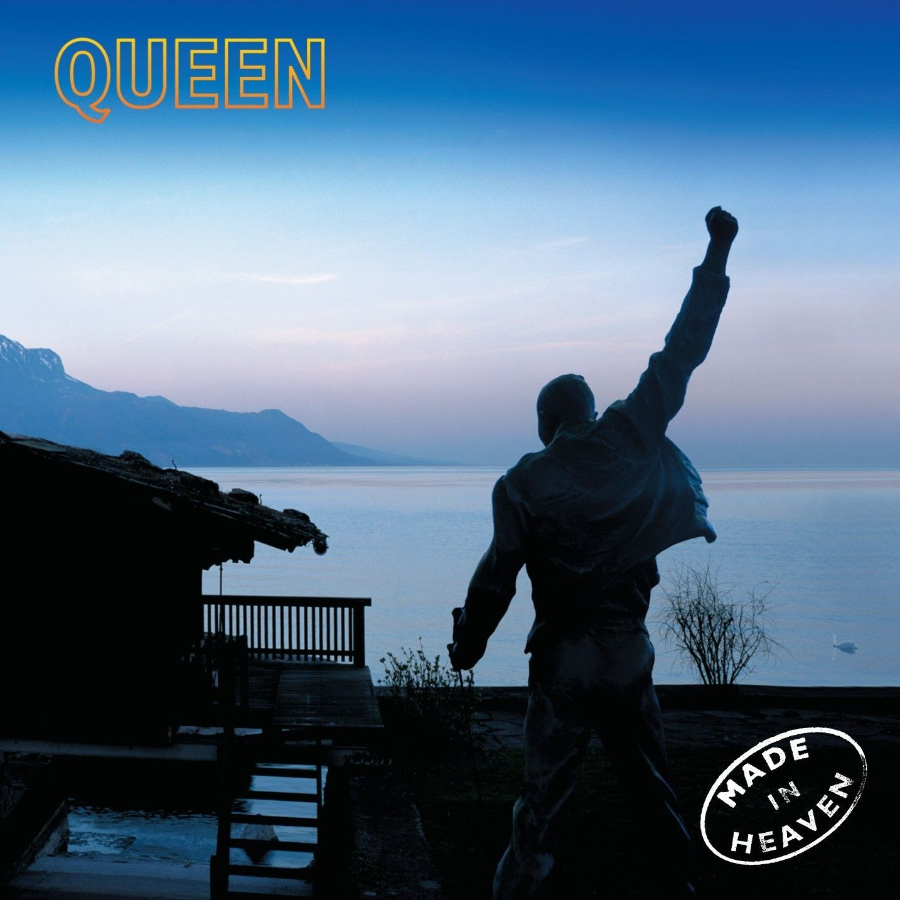Even if no one was informed that these songs were sung in the shadow of death, that subject matter would become crystal clear…
The lyrics are infused with issues concerning life-and-death, from the titles of the songs – Let Me Live, My Life Has Been Saved, and Too Much Love Will Kill You – to lyrics like: “Sometimes I feel so sad, so sad, so bad” (It’s a Beautiful Day), “Taking in all this misery / But giving it all my soul” (Made in Heaven), and “I’m a man of the world and they say that I’m strong / But my heart is heavy, and my hope is gone” (Mother Love). Freddie Mercury’s immense singing talent had always accommodated a splash of campness, and remarkably it persisted, even under the circumstances of his illness. Mercury was probably set on going out the same way he had come in, as the sassiest “musical prostitute” there is.
Released on November 6th, 1995, Made in Heaven topped the UK album charts and ferociously spat out five top-twenty UK singles. The album opens to the dreamy intro of It’s a Beautiful Day. An optimistic and bright piece with hints of classical components, this track detached any apprehension that the loyal Queen fans might have experienced when first possessing the album. Mercury‘s vocals are immense as ever as his rebellious side picks up where it left off with Queen’s previous album, Innuendo – “no-one’s going to stop me now”, although there is a sense of surrender as the song fades out – “It’s hopeless / So hopeless to even try”.
The second song on the album, Made in Heaven, seamlessly blends into the first but our ears are then introduced to the sounds of suspenseful drums and electric guitars. Made in Heaven was a new version of the song that first appeared on Mercury’s solo album, Mr Bad Guy, which none of the other band members had played until then. The vocals were copied and then drummer Roger Taylor, bassist John Deacon, and guitarist Brian May gave it their recognisable Queen twist. The song focuses on pain and hardships, which are inevitable when trying to reach any goal, but Mercury highlights a glimmer of hope that there will come a point where things start looking up.
The classic rock ballad, Let Me Live, had been intended for a previous album and as a result, was pretty much complete and ready to go. Featuring a message that is saturated in torment – “Why don’t you take another little piece of my heart?”, this track was sung by the whole band and a few backing singers for the gospel-like chorus which is very similar to that of Somebody to Love. The harmonies on this song were influenced by Aretha Franklin and are very loose and free-flowing. Freddie had spoken of his love for Franklin many times, hence the inspiration for the song’s style.
Mother Love is important since it includes Mercury’s last ever vocal performance. “He never actually finished it,” Brian May told Guitar World. “He said, ‘Oh, Brian, I can’t do any more. I’m dying here’. It’s incredible, he never seemed to let it get him down. He was always full of humour and enthusiasm. He would make jokes about it.” In terms of the background music, Queen had a habit of making each drum intro very distinctive and unique. The words are very evocative of the intense loneliness that Mercury was feeling, and the song equals These Are the Days of Our Lives when it comes to the depth of lyrics. Roger Taylor confessed that the band was intensely moved by the talent and capability that came from such a fragile Mercury when he sang “Out in the city, in the cold world outside, I don’t want pity, just a safe place to hide”.
I Was Born to Love You derived from the recording Mercury made for his solo album Mr. Bad Guy in 1984. After Mercury’s death, Queen adjusted the song specially for the album. Brian May said: “I had an obsession with the song, and had the idea to make a new version, simulating how it would have sounded if we had been able to play it live with Freddie on stage”. Too Much Love Will Kill You, is one of Queen’s most passionate songs and is a delicate, more thoughtful piece that won the Ivor Novello Award for ‘Best Song Musically and Lyrically’ in 1997 and has become a firm favourite among fans. This song is able to make even the hard-hearted sob.
The last preserved original is the appropriately named A Winter’s Tale, written while Mercury observed the view of Lake Geneva in Switzerland. The last song he wrote on his own, this dreamy tune features lyrics that surround the reflections of a man who is recollecting his adolescence and an escape into a boundless state of serenity. With the words composed by a feeble man who was still appreciating life, the lyrics are moving and enchanting as Brian May’s guitar bellows out soulfully. At the peak of the song, the band harmonises with one another to symbolise the loyalty and solidity of their group as they finished the record without their main man.
With its many positive themes – existence, infatuation, beauty – Made in Heaven was more superior to that which anyone expected. All the components of classic Queen were constructed – remarkable vocals, an outrageous aura surrounding the lyrics, and the band not being afraid to explore their musical abilities. Twenty-five years on, Made in Heaven represents everything Queen stood for, and what had commenced in London all those years ago had finally ended on a bittersweet note.
By Megan Betts
Feature Image Credit: Queen Productions


